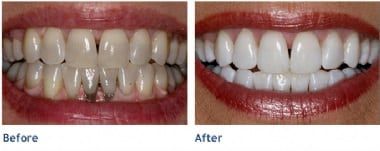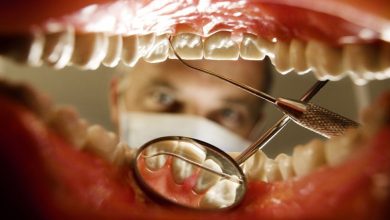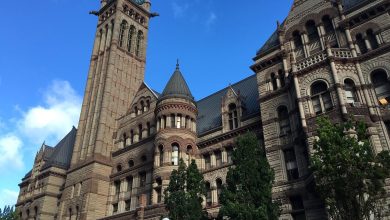How Long Does a Dental Cleaning Take? Find Out Now!

A dental cleaning appointment can vary in length depending on the condition of your teeth, but typically, it takes around 45 minutes to an hour. Maintaining good oral hygiene is essential for overall health, and dental cleaning is vital.
Regular dental cleanings help prevent tooth decay and gum disease and leave your teeth feeling fresh and clean. However, the answer can vary if you’re wondering how much time you need to set aside for a dental cleaning appointment.
Generally, a dental cleaning appointment takes around 45 minutes to an hour on average. Remember that this duration may vary depending on the condition of your teeth, such as the presence of tartar buildup or gum disease. We will explore the factors that can influence the length of dental cleaning and provide insights into what to expect during your appointment.

Credit: fultondentalpc.com
Factors That Determine Dental Cleaning Duration
The duration of a dental cleaning depends on various factors, such as the presence of tartar or gum disease, the condition of the teeth, and any additional treatments required. Broken or decayed teeth may take longer to clean.
The duration of a dental cleaning can vary based on several factors. Understanding these factors can help you better prepare for your dental appointment and have realistic expectations about the time needed. Here are three key factors that can impact the duration of dental cleaning:
Impact Of Oral Health Condition On Cleaning Time
Gum disease: The cleaning process may take longer if you have gum disease, also known as periodontal disease. The dentist or dental hygienist must remove tartar and plaque buildup below the gum line, requiring more time and attention.
Tooth decay: Broken or decayed teeth are more difficult to clean. The dentist or dental hygienist may need extra time to clean and address areas of decay or damage thoroughly.
Overall oral health: The condition of your teeth and gums can affect the amount of time required for a professional cleaning. If your oral health is generally good and there are no significant issues, the cleaning process may be quicker than if you have multiple oral health problems.
Effects Of Broken Or Decayed Teeth On The Cleaning Process
- Difficulties in accessing and cleaning: Broken or decayed teeth can make it challenging for the dental professional to access and clean specific areas. They may need additional time carefully working around these teeth to ensure a thorough cleaning.
- Increased risk of complications: The presence of broken or decayed teeth increases the risk of complications during cleaning. The dentist or dental hygienist must proceed cautiously to avoid causing further damage or discomfort, which can take extra time.
The Relationship Between Difficult-To-Remove Tartar And Cleaning Time
- Amount and location of tartar: Tartar is a hard mineral deposit on the teeth when plaque is not adequately removed. The amount and location of tartar can influence the duration of a dental cleaning. If there is a significant buildup of tartar, the dental professional may need more time to remove it effectively.
- Time-consuming removal techniques: Difficult-to-remove tartar may require specialized tools and techniques. The dental professional may need extra time using these techniques to ensure that all tartar is adequately removed.
By considering these factors, you can better understand the potential duration of your dental cleaning. Remember that each individual’s circumstances are unique, and your dentist or dental hygienist will be able to provide a more accurate estimate based on your specific oral health needs.
Remember, investing the right amount of time in your dental cleaning ensures a thorough and effective treatment that can contribute to a healthier smile.
Average Duration Of A Dental Cleaning Procedure
The expected duration of a dental cleaning procedure can vary depending on factors such as the condition of the teeth and the presence of tartar or gum disease. It typically takes around 30 to 60 minutes to complete a thorough dental cleaning.
When it comes to dental cleanings, many people wonder how long the procedure will take. While the exact duration may vary depending on individual factors, there are some average time frames to consider. Let’s explore the expected duration of a dental cleaning procedure:
Typical Time Needed for a Standard Dental Cleaning:
- The standard duration of a dental cleaning is typically between 30 minutes to an hour.
- This includes both the scaling and polishing processes.
- However, the time may differ depending on your dental needs.
Appointment Duration with No Complicating Factors:
- In cases with no complicating factors, such as excess tartar buildup or gum disease, a dental cleaning appointment can usually be completed within 30 minutes.
- This process is relatively quick and straightforward, especially if you maintain good oral hygiene habits.
Factors That Can Alter the Duration of a Cleaning Session:
- The presence of difficult-to-remove tartar or gum disease may require additional time for thorough cleaning, resulting in an extended appointment duration.
- Dental issues such as broken or decayed teeth may also necessitate more time to ensure proper cleaning and treatment.
- Additionally, if other oral health concerns or procedures are scheduled during the same appointment, the overall cleaning duration may be affected.
Remember, dental cleaning durations can vary from person to person, and discussing any specific concerns or conditions with your dentist is essential. They will assess your needs and provide the most accurate estimate for your dental cleaning procedure duration.
Addressing Pain During Dental Cleaning
A dental cleaning can take longer if you have difficult-to-remove tartar or gum disease. The condition of your teeth, such as broken or decayed teeth, can also affect the time required for a professional cleaning. However, it should not be painful unless there are complicating factors such as gum inflammation or tooth decay.
Understanding the Causes of Pain During Teeth Cleaning
Gum inflammation: If you have gum disease or inflammation, it can make your teeth more sensitive and prone to pain during cleaning.
Tooth decay: Tooth decay can cause sensitivity and discomfort, making the cleaning process painful.
Oral diseases: Symptoms of oral diseases, like gum inflammation or tooth decay, can lead to increased sensitivity and significant discomfort during cleaning.
Factors That Can Increase Sensitivity And Discomfort:
Tartar build-up: If you have a significant amount of tartar build-up on your teeth, it can make the cleaning process longer and more uncomfortable.
Teeth sensitivity: Pre-existing sensitivity in your teeth can make cleaning more painful.
Nerve exposure: In some cases, nerve exposure due to gum recession or tooth damage can cause increased sensitivity and discomfort during cleaning.
Tips for Minimizing Pain During the Cleaning Process:
Communicate with your dentist: Let them know if you have any sensitivity or discomfort beforehand so they can adjust the cleaning process accordingly.
Numbing gel: Ask your dentist if they can apply a numbing gel to minimize pain or discomfort during cleaning.
Practice good oral hygiene. Regularly brushing and flossing your teeth can reduce sensitivity and discomfort during cleanings.
Use desensitizing toothpaste: Use a desensitizing toothpaste for a few weeks leading up to your cleaning to help minimize sensitivity.
Take a pain reliever: If you anticipate discomfort during the cleaning, you can take a pain reliever such as ibuprofen beforehand. However, consult with your dentist or healthcare provider before taking any medication.
Remember, addressing any pain or discomfort during dental cleanings with your dentist is essential. They can provide personalized advice and techniques to make the process more comfortable.
Frequently Asked Questions On How Long Does A Dental Cleaning Take
How Long Does It Take To Clean Your Teeth Fully?
A complete teeth cleaning takes about 45 minutes to an hour.
Why Does Dental Cleaning Take So Long?
Dental cleaning may take longer for difficult-to-remove tartar or gum disease. Broken or decayed teeth require extra time.
Is It Painful To Get Teeth Cleaned?
Teeth cleanings should not hurt, but if there are complicating factors like gum inflammation or tooth decay, it may cause some discomfort.
How Long After Teeth Cleaning Can I Eat?
You can eat as soon as you feel ready after a teeth cleaning, unless you have had fluoride treatment, in which case you should wait at least thirty minutes.
Conclusion
Dental cleanings are essential to maintaining good oral hygiene and preventing dental issues. The duration of a dental cleaning can vary depending on various factors. If you have difficult-to-remove tartar or gum disease, your appointment may take longer.
Broken or decayed teeth can also increase the cleaning time. The vital thing to note is that dental cleanings should not be painful. However, if you experience any discomfort, it may be due to underlying issues such as gum inflammation or tooth decay.
In such cases, sensitivity during the cleaning process can cause significant discomfort. After a dental cleaning, you can eat as soon as you feel ready, but if a fluoride treatment is done, you may need to wait for at least thirty minutes.
Overall, the duration of a dental cleaning depends on your specific dental needs and the condition of your teeth. Remember, regular dental cleanings are vital for optimal oral health and should be scheduled as your dentist recommends.





One Comment